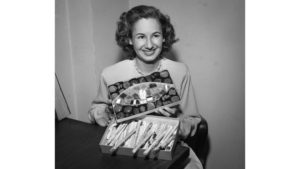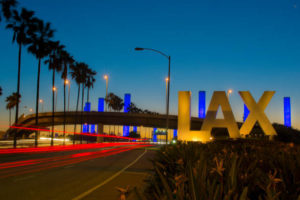Why has the Supreme Court given Southern states the freedom to add voting restrictions?
TOP STORIES
The Legal Divide Over Voting
This year’s wave of new voting restrictions across the South may seem a response to the 2020 election. But as The Times’ veteran Supreme Court reporter David G. Savage writes, its origins stem in no small part from the high court, which over the last decade has reshaped election law to elevate the power of state lawmakers over the rights of their voters.
The sum of the court’s rulings on elections could give the Republican Party a significant edge as it seeks to recapture control of Congress in 2022 and the White House in 2024.
Under Chief Justice John G. Roberts Jr., the Supreme Court threw out the part of the Voting Rights Act requiring states with histories of discriminating against Black voters to clear election rule changes with the U.S. Justice Department. Writing for a 5-4 majority in 2013, Roberts called the section outdated and said it did not fit with “current conditions.”
So, how did we get here? The legal divide over voting and elections begins with a basic dispute over how to read the Constitution and American history.
Struggling for Answers
Members of California’s Burmese diaspora have protested across the state since Myanmar’s military regime seized control of the government on Feb. 1.
The military detained Aung San Suu Kyi and other civilian leaders and made baseless claims that recent elections were riddled with fraud. Despite international condemnation and strikes that have brought the nation’s economy near collapse, the military has maintained a state of emergency and doubled down on its repressive tactics.
For the small community in California, the coup has sparked fears that Burma’s decades-long striving toward limited democracy and individual freedom could be over.
CSU’s New Normal
In early December, California State University leaders made a bold announcement: All 23 campuses would reopen for in-person classes in fall 2021. But with registration underway for the new academic year, the return is looking anything but normal — and it has become clear the pandemic has altered the future of the nation’s largest four-year university system.
Online options are here to stay.
Throughout the system, in spring surveys, campus discussions and early registration trends, a new realization has emerged among students and staff. At CSU’s largely commuter campuses, many found valuable upsides to virtual learning: greater flexibility in their college-work-life balance, fewer expenses, the ability to keep students in college.
More Top Coronavirus Headlines
— A California safety board recommended relaxing workplace safety rules for people vaccinated against COVID-19, meaning that on June 15, employees will probably be able to take off their masks in a room if everyone there is vaccinated.
— The White House unveiled President Biden’s plans to share COVID-19 vaccines with the world, including its intent to direct 75% of excess doses through the U.N.-backed COVAX global vaccine sharing program.
— Researchers in South Africa are documenting an ominous development: the collision of the pandemic with HIV/AIDS, as they study potentially dangerous coronavirus mutations in a 36-year-old woman with uncontrolled HIV.
— As the virus spreads in the Indian countryside, the lack of health infrastructure and government reporting is obscuring the true scope of the country’s massive second wave.
For more, sign up for Coronavirus Today, a special edition of The Times’ Health and Science newsletter.
.
.
Ads by: Memento Maxima Digital Marketing
@[email protected]
SPACE RESERVE FOR ADVERTISEMENT
.
FROM THE ARCHIVES
Life’s like a box of chocolates. Indeed, you never know what you’re going to get. In June 1947, the Los Angeles County district attorney’s office exhibited $40,000 worth of opium found concealed in a candy box. The stash was discovered during an investigation of a robbery and kidnapping ring.
.
June 4, 1947: Aurora Springer, secretary in the Los Angeles County district attorney’s office, exhibits $40,000 worth of opium found concealed in a candy box. (Los Angeles Times Archive / UCLA)
YOUR WEEKEND
— Amateur geologists are scouring for ancient rocks, valuable minerals and world-famous gems. Want to join in? Let’s rock.
— No yard, no problem. You can still grow your own garden, including fruits, vegetables and herbs, with just a balcony.
— Here’s a look at 10 California visitor destinations that are reopening, as well as dozens of others that have already reopened — including, in the next week, downtown L.A.’s Museum of Contemporary Art, San Diego’s Old Globe and Yosemite’s Wawona Hotel.
.
.
Ads by: Memento Maxima Digital Marketing
@[email protected]
SPACE RESERVE FOR ADVERTISEMENT
.
CALIFORNIA
— This week, a heat wave swept through California’s Central and Sacramento valleys, setting temperature records and prompting heat advisories, even as coastal regions remained temperate.
— Tito Ortiz was hailed as Huntington Beach’s Donald Trump. But after he abruptly stepped down from the City Council, where does the city go now?
— Despite concerns about fatal shootings in California, a bill to create new taxes on the sale of guns and ammunition to pay for gun-violence prevention programs failed to get the two-thirds vote needed for passage in the state Assembly.
— A man has been arrested in connection with a series of vandalism incidents in West L.A., including at a Pico-Robertson synagogue last month.
— F. Lee Bailey, who was at one time the most famous trial attorney in the country, defending clients including O.J. Simpson and Patty Hearst, has died at 87.
Support our journalism
Subscribe to the Los Angeles Times.
NATION-WORLD
— Postmaster General Louis DeJoy is under investigation by the Justice Department over political fundraising activity at his former business.
— The Supreme Court limited the scope of the federal law against computer hacking, ruling it covers those who break into confidential files, but not people who misuse the information they were authorized to see.
— Federal prosecutors are asking a judge for more time to prepare for the trial of four former police officers facing civil rights charges in the death of George Floyd, calling the case unusual and complex.
— Buckingham Palace barred ethnic minorities from office jobs during the 1960s, the Guardian newspaper reported, citing documents in Britain’s National Archives.
— United Airlines intends to bring back supersonic travel before the decade is over with a plane that is currently just an artist’s drawing — even the prototype hasn’t flown yet.
HOLLYWOOD AND THE ARTS
— Liz Phair is totally good with being a Gen X feminist in a Gen Z world. Her wise and witty new album, “Soberish,” is her first studio LP in more than a decade.
— Music manager Scooter Braun, known for discovering Justin Bieber and making enemies of Taylor Swift, is embroiled in a legal battle with a former business partner over failed plans for a $750-million fund.
— With “In the Heights,” director Jon M. Chu disrupts the movie musical. Here’s how he did it.
— Longtime “The Bachelor” host Chris Harrison, swept up in an ongoing racial controversy, reportedly will not host this season of “Bachelor in Paradise.”
BUSINESS
— AMC Entertainment Holdings Inc. dizzied investors by losing 40% of its market value, then regaining more than half of that — and pocketing more than $587 million in fresh cash by exploiting the frenzy.
— Chinese tech giant Tencent is significantly expanding its footprint in Los Angeles, opening an office in Playa Vista that could house 300 employees.
SPORTS
— The Phoenix Suns eliminated the Lakers from the NBA playoffs after star Anthony Davis limped off the court midway through Game 6.
— Angels pitcher Griffin Canning struggled as the Angels fell to the Seattle Mariners.
Free online games
Get our free daily crossword puzzle, sudoku, word search and arcade games in our new game center at latimes.com/games.
OPINION
— Contrary to the ill-informed criticisms circulating, a new mathematics proposal for California schools would not take the rigor — or the emphasis on finding correct answers — out of math. It would almost certainly make math more interesting to many students, The Times’ editorial board writes.
— When a cop takes a bribe to look up someone’s license plate number on a restricted-access law enforcement database, that’s corruption. But it’s not hacking, writes Jon Healey.
WHAT OUR EDITORS ARE READING
— Some thoughts on Naomi Osaka: “Refusal isn’t beautiful in practice. Refusal is necessary.”(Refinery29)
— Issues of equality and acceptance of transgender and nonbinary people — along with challenges to their rights — have become an important topic in the news. These issues can involve words, ideas and identities that are new to some. Here’s a guide to gender identity terms. (NPR)
ONLY IN CALIFORNIA
Whether you consider the Kardashians purveyors of a new kind of pop culture savvy or the poster family for the perils of fast fame in the 21st century, there’s no denying that the California family exemplifies the ascent of reality TV in American life. As their landmark show winds down after 20 seasons, the family looks back at making the pilot episode that launched their careers.
Comments or ideas? Email us at [email protected].
.
.
Ads by: Memento Maxima Digital Marketing
@[email protected]
SPACE RESERVE FOR ADVERTISEMENT
|

